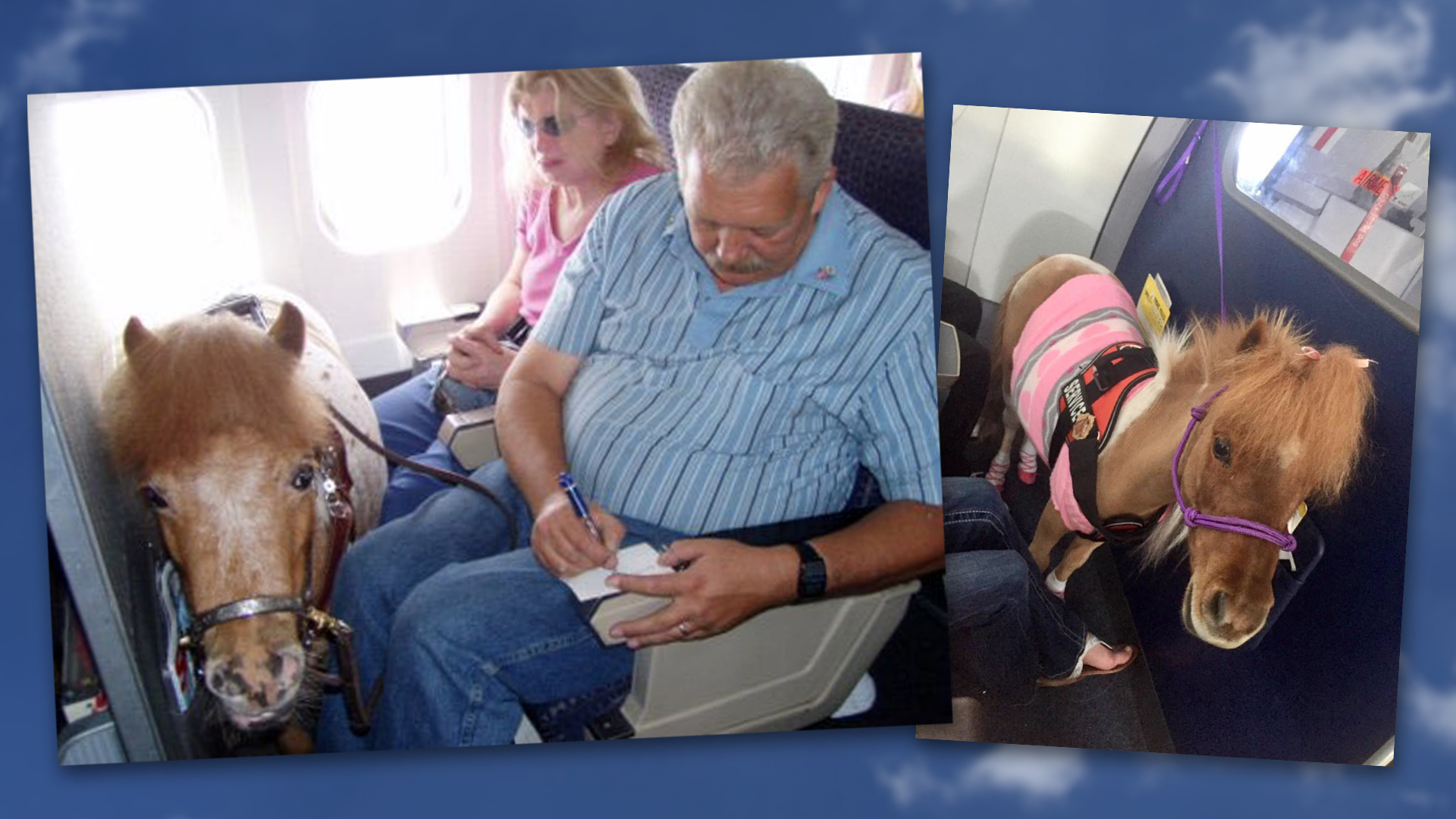

For all its indignities, air travel is also surprisingly democratic—people of all stripes and shades crammed together into a small metal tube and lofted into the sky. Some of them have service animals, some of which are a hair more exotic than a vested dog. This has caused spirited debates. But on Thursday, the U.S. Department of Transportation issued its final guidance on the subject and added miniature horses to the list of service animals that can fly in any cabin.
You may have some questions. Yes, miniature horses make great—if rare—service animals for those with emotional and physical disabilities. Standing 2-3 feet tall, weighing around 100 pounds, and often living 35 years or longer, they’re not unlike large dogs in their comforting presence and ability to perform complex tasks. And yes, airlines have historically balked at the idea of seating a horse in Economy Plus. The DoT’s statement notes that air carriers “have asked us to declare that a wide variety of species (e.g., birds…and animals with hooves or horns) constitute ‘unusual service animals’ that may be categorically banned.”
But with trained miniature horses officially recognized in the Americans with Disabilities Act as legitimate service animals, the agency has decided they must be able to fly. The declaration isn’t a law per se, but it indicates that they’ll punish U.S. airlines that violate it.
“In this Final Statement, after reviewing the comments on this issue, we believe that it would be in the public interest and within our discretionary authority to prioritize ensuring that the most commonly recognized service animals (i.e., dogs, cats, and miniature horses) are accepted for transport,” the document reads.
So anyone with a service miniature horse and the need to fly across the country will no longer have to say bye, bye to Little Sebastian at a TSA checkpoint. The Department does note that airlines are still allowed to reject certain approved animals if they’re deemed too large, too dirty, or too dangerous. But do airlines really want the PR headache of a hundred smartphone videos showing a flight attendant boot a little horse off a plane?
Undoubtedly, some of you reading this aren’t exactly thrilled about sharing your next flight with a barnyard animal. You should also know that the guidance only allows airlines to specifically ban snakes, reptiles, ferrets, rodents, and spiders from the cabin. Anything else presented as a service animal must be considered on a case-by-case basis, though it acknowledges that documented complaints about that particular species from other fliers is grounds for refusal. We wonder where that leaves peacocks.
The rise in news stories like that peacock incident isn’t random chance—according to the New York Times, the number of service animals on U.S. air carriers has increased year-over-year this decade, in particular jumping from 481,000 in 2016 to 751,000 in 2017. A few airlines have gotten ahead of the DoT by opening their cabins up to miniature horses in the last year or so—Southwest, Alaska, American, and United all previously stated that equanimous equines are OK to fly. Now the sky is literally the limit.
The declaration contains other important rules for service animals. You can bring up to three critters on a flight, but only one of them can act as an emotional support animal—the other two must be physically necessary. Airlines are allowed to require advance notice for emotional support animals, not physical service ones. Complicating both of those rules is the fact that airlines are still forbidden from demanding proof of an animal’s training or certification outright, though there’s a loophole for carriers who say they’re conducting a “threat analysis.”
The animals also don’t have to be restrained in any specific way in the cabin as long as their movements don’t inconvenience other passengers, though there’s a lot of “case-by-case” logic sprinkled throughout the rulings. But bottom line, don’t be shocked if you see a tiny horse strolling down the aisle in the not-too-distant future. Don’t fret, though—they’re still required to be housebroken.